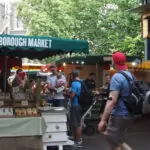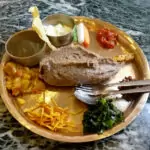British food has an undeserved reputation for being bad. I’ve heard this from many nationalities over the years. British food is not bad, it’s great, so in this blog post I’m going to try to explain what British food is, and give an overview of traditional and popular British food dishes. Not one of them bad!
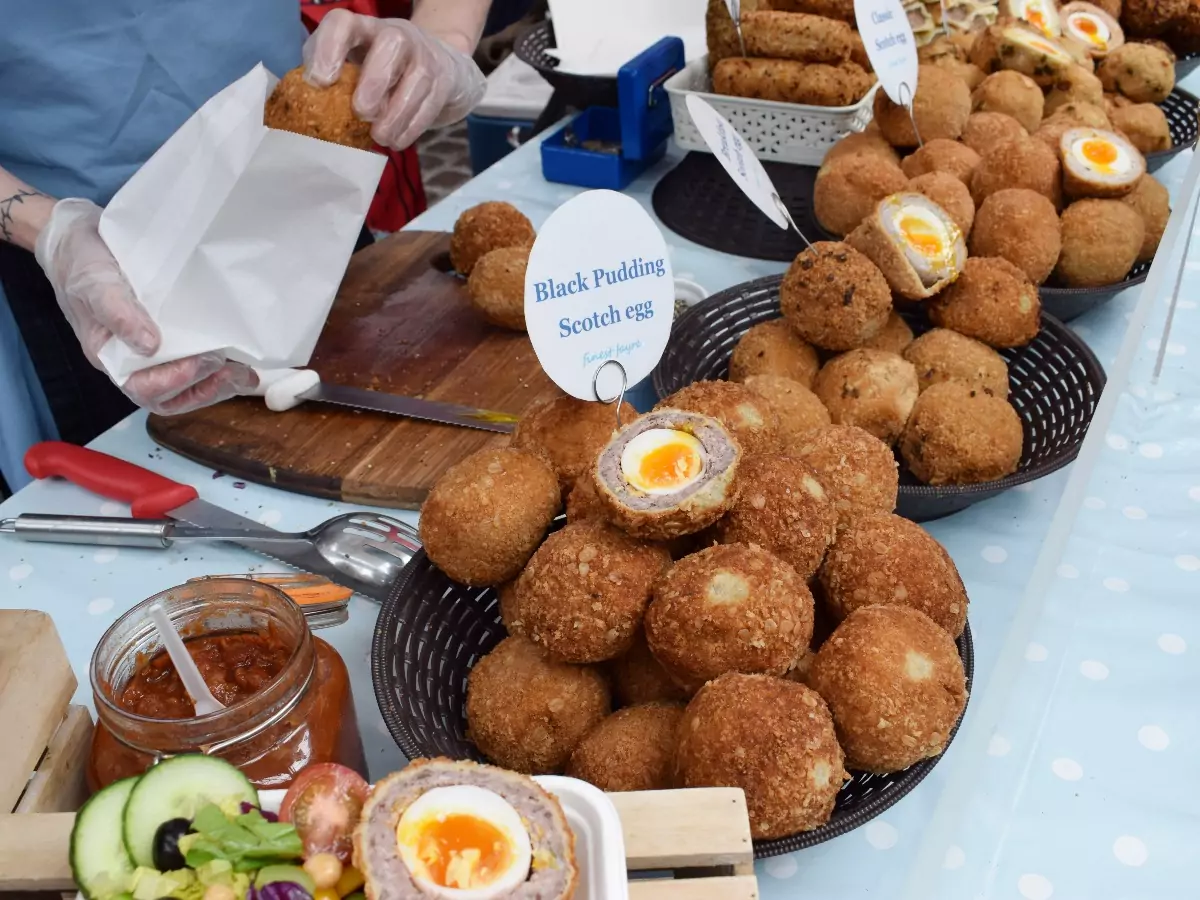
Of course, there are good cooks and bad cooks, poor versions of British dishes and top-end recipes using the finest British ingredients and cooked to perfection. I’ve eaten them all.
Below you will find some of the best British food tours available in London and the UK. These would be a great starting point for learning about British cuisine!
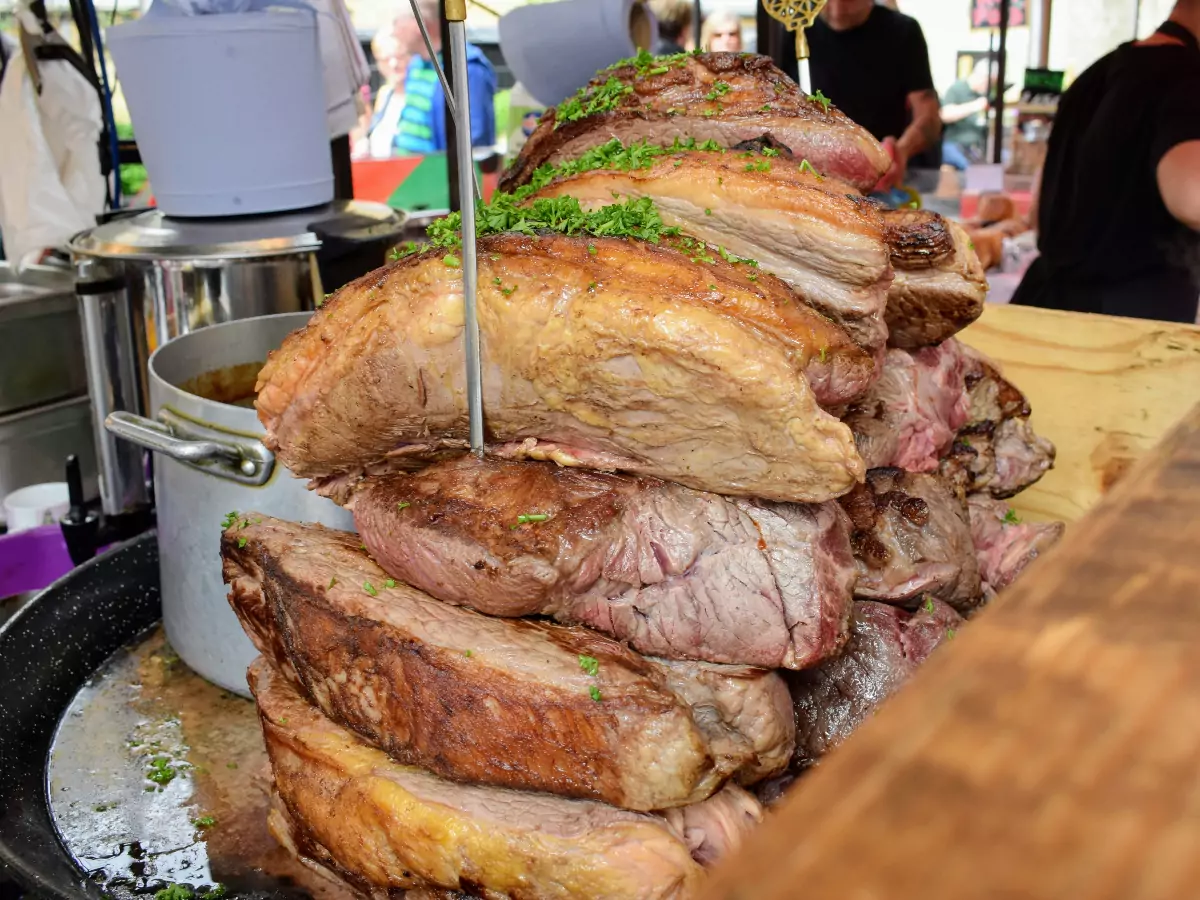
I am a British mum, I was raised on very traditional British cuisine by my mum and grandmother. I even endured over a decade of British school dinners, so I’ve seen British food from many angles.
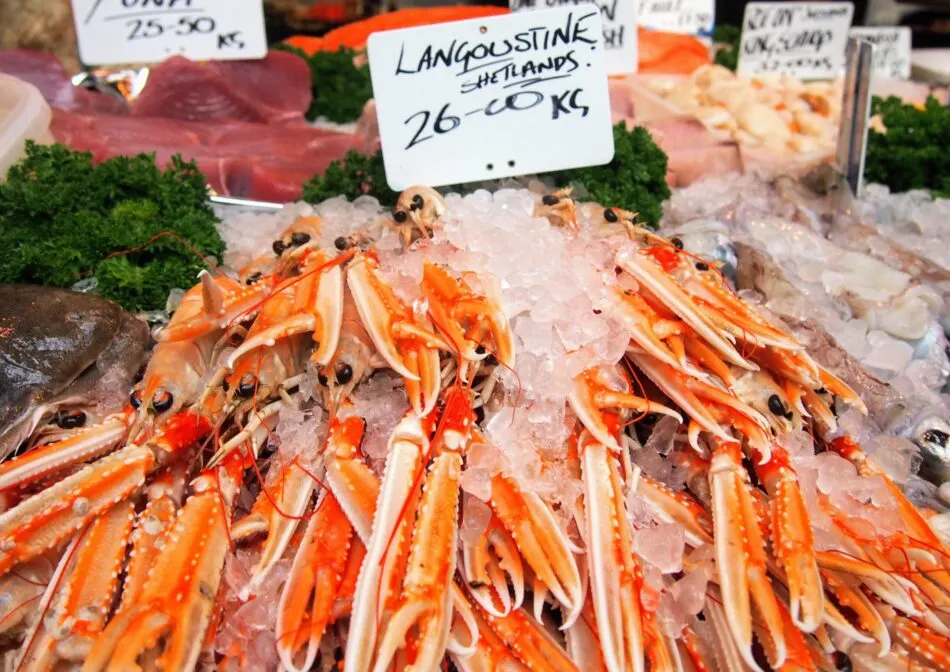
Then I married an Aussie chef, at that time working in the finest hotel kitchens in London. We travelled the world tasting many cuisines and we both agree, British food is not bad!
What is British Food
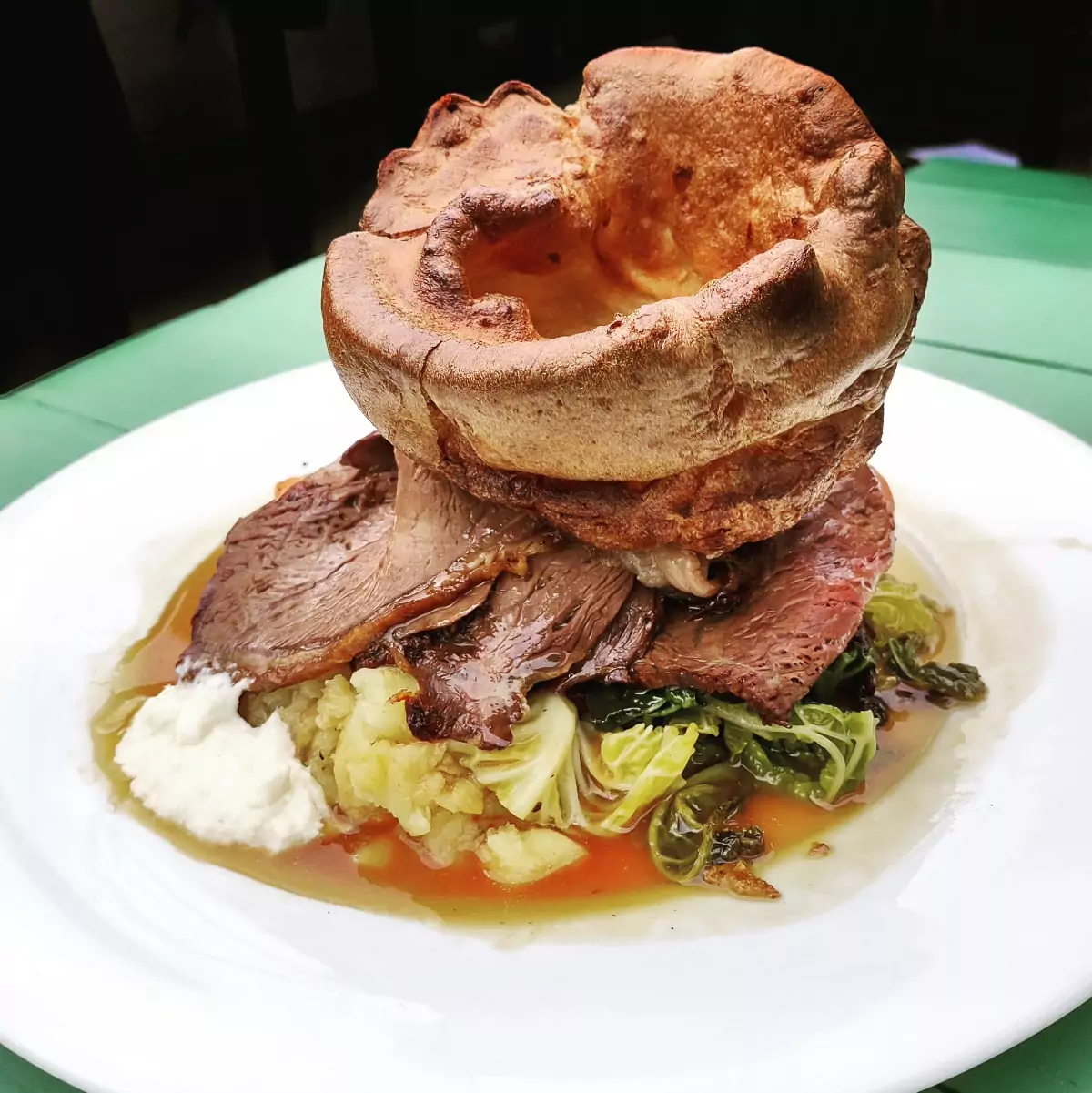
What is British food? British food comes from the nations that make up The United Kingdom of Great Britain and Northern Ireland. Technically, Northern Ireland, although part of the UK, isn’t part of Great Britain.
Great Britain comprises the countries of England, Wales, and Scotland and refers to the island of Great Britain, so when discussing British food, you must remember to include Welsh, Scottish and English food.
Each country that makes up our one country, has its own regional specialities.
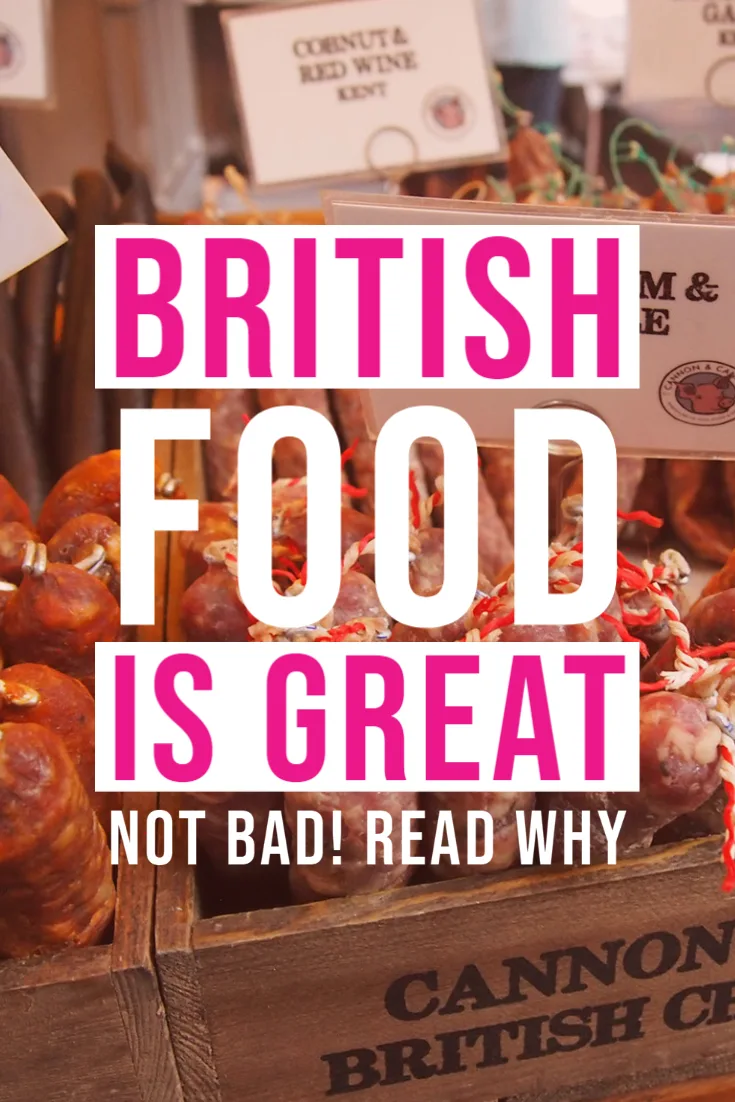
In Britain today, you’ll find most families eating Indian food, Chinese, Italian, Greek, Romanian or Nepali foods. In the UK you really can eat anything and everything, either cook at home, take away, street food or junk food. We eat it all.
Many of us consider chicken tikka masala to be as British as fish and chips or Cornish pasties. It was invented in Glasgow.
We’re crazy about Indian food in Britain, but let’s try and stick to the older foods, the traditional British dishes using food and produce from The British Isles.
Examples Of British Food
British Fish and Chips
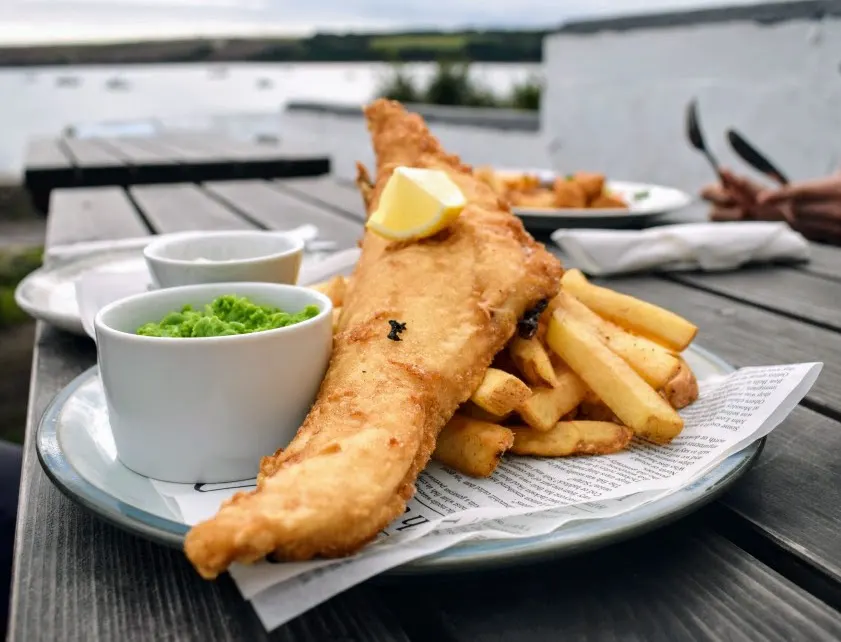
Everyone associates fish and chips with British food, don’t they? I’ve been eating it for at least the last fifty years and I think of it as the British national dish.
Fish and chip shops vary enormously in quality in the UK, you have to know where to go. Of course, you need to know your fish too.
Britain makes its fish and chips from cold water local sea fish such as cod, hake and haddock. A good fish and chip shop will use truly fresh fish, not frozen, and you can get this just about anywhere in the UK. Fresh fish is not frozen.
British fish and chip shops also sell side dishes like mushy peas, gravy, and curry sauce, along with various other items like pies and sausages in batter.
A good fish and chip shop will specialise in fish, the batter will be crisp perfection, and the chips will be made from freshly cut potatoes, with no processed fries.
Your fish should come with tartar sauce (a French addition), of course, and your chips sprinkled with salt and malt vinegar.
Lemon wouldn’t be usual, we don’t grow many lemons in the UK, but you do find lemon often now. We never serve chicken salt with British fish and chips, which seems specific to Australia.
The British Sunday Roast
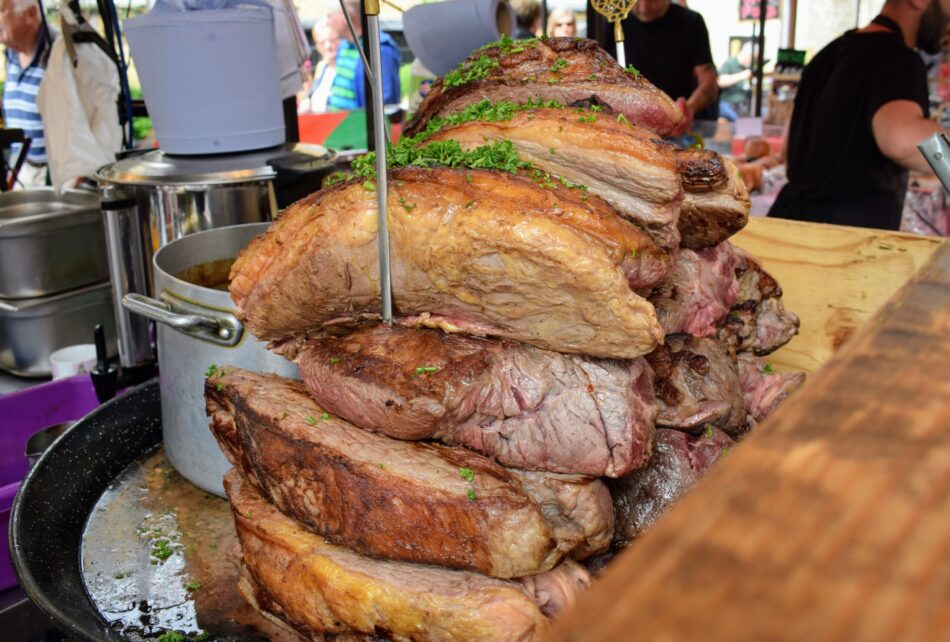
In days gone by it was traditional to have a “roast dinner” on a Sunday. For some families it will still be their tradition, others will go to a restaurant or carvery for a Sunday lunch while many will be just as likely to cook pasta.
A British roast is how we celebrate family events like Christmas or Easter. On those occasions, the roast usually has a lot more trimmings and more complex side dishes.
Roast turkey is what we normally serve at Christmas, but roast chicken is the usual, every-week, sort of roast bird. Some will prefer roast duck, goose, or pheasant.
A roast will usually come with potatoes, either roast potatoes, crispy from oven baking in fat, mashed or boiled, plus a minimum of two other steamed or boiled veg. Sometimes the veg will be in some sort of sauce or dressing.
Many British cooks insist that goose or duck fat is the best cooking fat for “roasties”. Others may use lard, tallow, or a modern oil.
Stuffing is usually a mixture of breadcrumbs, herbs and onions and can be cooked inside the bird or separately. Other ingredients such as chestnuts or meat can also be in a more fancy stuffing mix.
Gravy comes with roast meats and is made from meat juices plus meat or veg stock. I add wine to gravy, others may not, my mother never did, wine wouldn’t have been in the house as it is today.
Some roast meats have traditional accompaniments, roast beef might come with Yorkshire pudding and horseradish sauce. Roast lamb should have mint sauce made with fresh mint straight from the garden. Cranberry sauce and bread sauce are popular with turkey and freshly made apple sauce with pork and crackling.
Vegetables we eat in Britain along with a meat dish like this could be such things as carrots, broccoli, French beans, sliced runner beans, roast parsnip or braised red cabbage.
The only veg you probably won’t find on your Sunday dinner are things like Asian greens, aubergines, okra, and tomatoes. In British traditional food, we’d normally only serve vegetables that are easy to grow in the British climate.
We can grow such crops as tomatoes, cucumbers, and peppers, of course, but we tend to use them in summer salads. Our root crops were historically easier to preserve through winter, so these are common along with winter brassicas. Pumpkins are not typically popular in British cooking.
British Savoury Pies
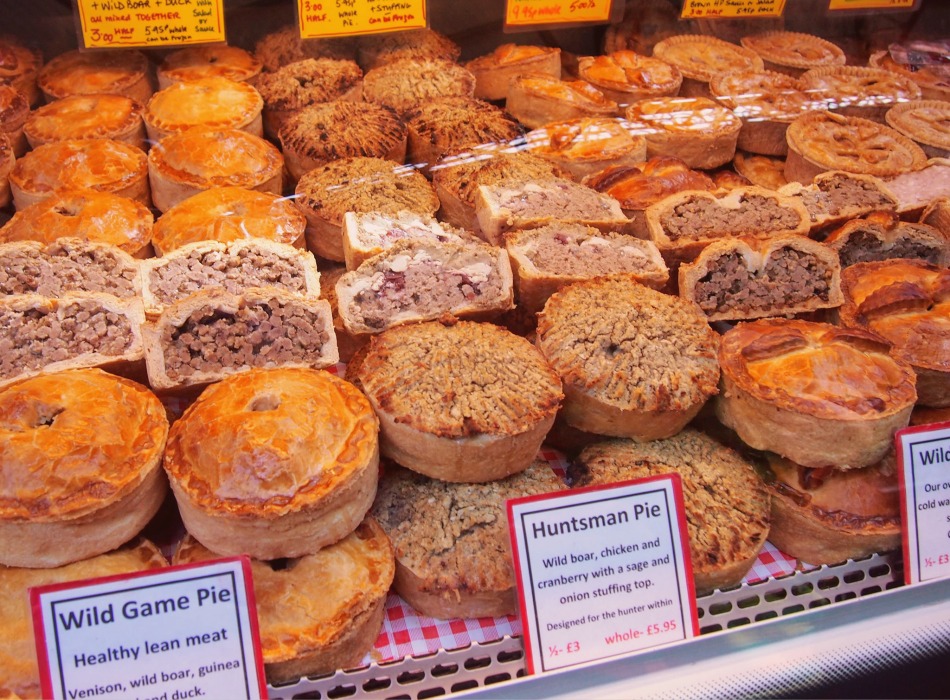
A lot of very old, traditional British food comes in the form of pies. We have pork pies of course, but there’s also game pie, steak and kidney pie, huntsman’s pie, steak and ale pie, various fish pies, cottage pie, and shepherds’ pie.
We do a very good meat pie at every level, both hot and cold.
I doubt many British home cooks go in for making these pies often, they’re a lot of work, including making suet crust or hot water crust pastry. These are usually large family or banquet-size raised pies to be sliced, although individual-sized pies are made commercially.
Shepherds’ pie is much easier to make, here the pastry is replaced by mashed potato. Some fish pies also come with a mashed potato topping. These are the sort of thing a British family might eat mid-week.
If you’ve only experienced British pies from high street outlets, or fish and chip shops, you haven’t tasted a real British pie. A hot take-out pie in the UK is usually mass-produced junk food and you’re very likely to be disappointed.
British Puddings, Sweets and Deserts
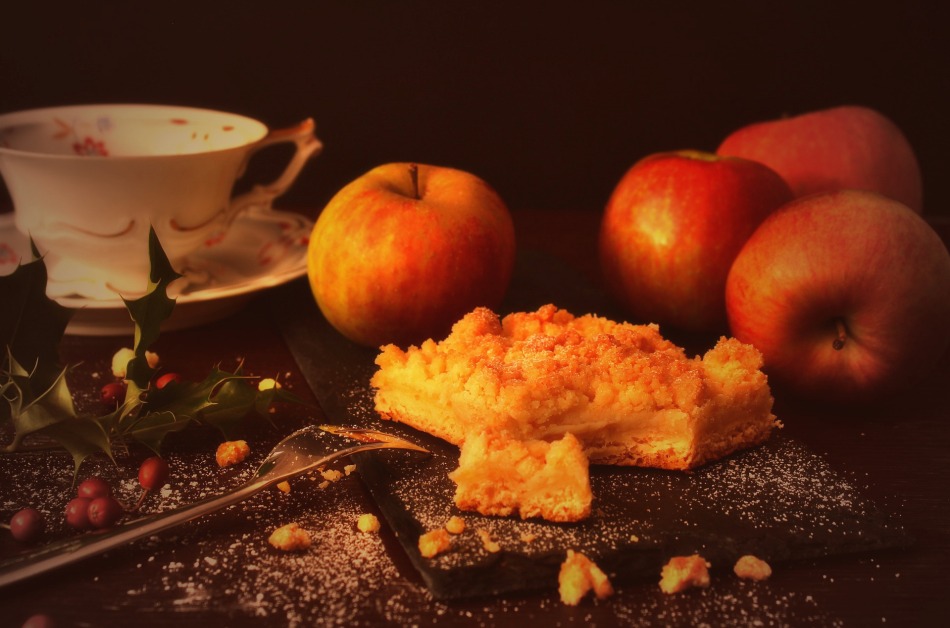
In Britain we bake. We are famous bakers, we have whole competitions and TV series dedicated to baking, so don’t, for one second, think we don’t have perfect cakes, fruit pies, pastries, and other sweet treats in the UK.
Scones, famous as part of a cream tea, or afternoon tea, are of course, British.
As a side note, “tea” is actually a meal in some parts of the UK. It’s not a high tea as you might imagine, it is your evening meal or dinner. Dinner at my mum’s house was what you had at midday on Sundays. Supper was a pre-bed snack rarely eaten.
British puddings like spotted dick, jam roly-poly, and steamed treacle pudding are rib-stickers. They’re delicious, but in my life I’ve eaten them just a handful of times. They’re quite the production to make but not as bad as the traditional British Christmas pudding.
To make the “Christmas pud” we have to start in October with a list of sweet ingredients as long as your arm. I have to admit, I don’t like Christmas pudding much, but it’s traditional so we serve it. Is it considered “bad” by other nations? I don’t know.
The most popular desserts in my household would be apple or blackberry and apple pie or crumble, any kind of cake, and trifle. My kids love a good trifle and I’m pretty sure most people consider it to be British.
We’re very partial to bread and butter pudding too, which is nothing like bread pudding. The two are quite different.
Which brings us to custard. I make custard to go in a trifle. This is the only time I make custard as I don’t like it. I’m sure some Brits still pour custard on many things, I don’t.
To me hot custard is most certainly “bad”, to others, it will be the nectar of the gods. I have no idea why people eat custard. Is this one of those “bad” British foods maybe? It’s quite time-consuming to make too, if you avoid the packaged powders.
In school, we had some of the worst puddings known to man. We poor kids endured semolina and tapioca pudding for years. It’s filthy stuff and we were forced to eat it. I’ve never seen it anywhere other than in school. Industrial-scale catering is never good.
The Great British Breakfast
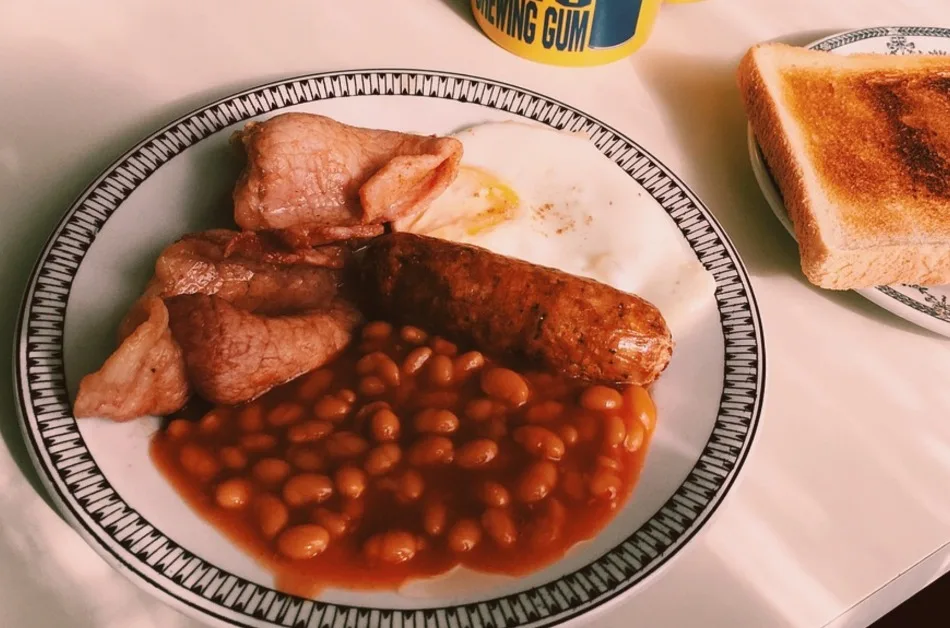
We all have a “fry up” every morning in the UK don’t we? No, we don’t. A full English, Welsh, Scottish or British breakfast would include sausages, bacon, eggs, tomatoes, baked beans, toast, mushrooms plus regional specialities.
Some British breakfast versions would contain black pudding, others haggis, spinach, or lava bread.
Of course, there are some really bad versions of a full British breakfast. Poor quality ingredients and bad cooks can ruin anything, but get the good stuff and cook it well, then you’re in for a treat.
When I was growing up a cooked breakfast like this never happened more than once a week. Our usual breakfast would be cereal, toast, or eggs. These fry-ups are artery busters and are best kept as rare treats.
Beans on toast seems to be controversial. I have no idea why. We children would often have beans on toast for “tea” after school. Beans on toast is delicious, but its processed food so it’s not something I feed my own family. We cook from scratch.
British bacon is like no other bacon we’ve found anywhere in the world. We’ve lived in Australia, Asia, and mainland Europe, travelled extensively in the US. We’ve never found British back bacon anywhere else. British bacon is very good indeed and is raw cured.
Regional British Foods
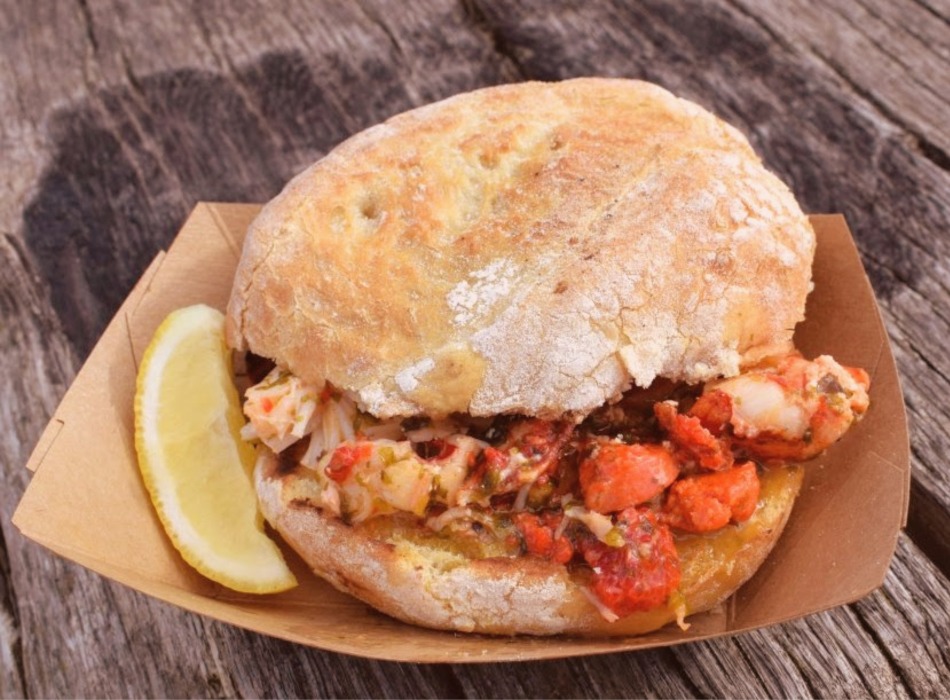
In Wales try lava bread, cawl, and Welsh cakes. Scotland should give you haggis, tatties, neeps, and oatcakes. In Cornwall try stargazy pie, clotted cream and pasties, in the north of England search for Lancashire hot pot and Eccles cakes and in London, well, if you’re brave, try pie mash and liquor or jellied eels.
Some of these British regional dishes are ancient foods, they can be hard to find.
Weird British Foods
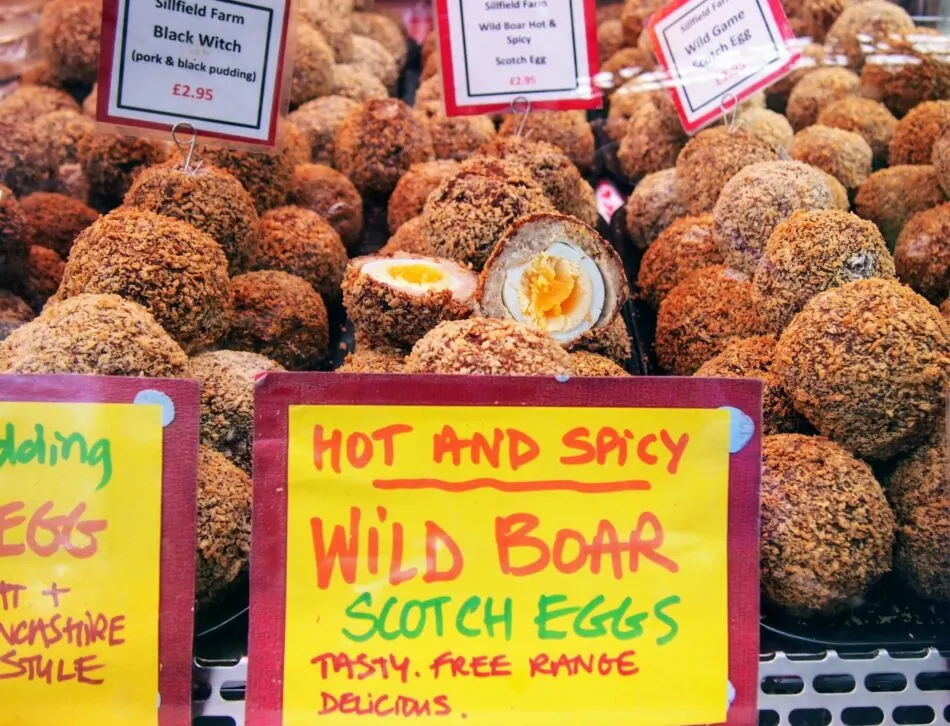
I already mentioned stargazy pie and jellied eels, they’re pretty weird. We have a few other British foods that most other nationalities might consider weird, sometimes just the names are weird. These can be hard to understand for foreigners. Here’s a list of weird and weirdly-named British foods.
- Stargazy pie (a special fish pie with fish heads protruding through the pastry)
- Jellied eels (a rare thing these days, eels, in jelly)
- Bangers and mash is just sausages (bangers) with mashed potato and, usually, onion gravy.
- Black pudding (a blood sausage of sorts, I’ve never tasted it but my dad likes it.)
- Mince pies (they’re sweet individual dried fruit pies, served at Christmas)
- Bubble and squeak (mashed, fried, leftover potato and vegetables)
- Scotch eggs (an egg, coated in sausage meat and breadcrumbs, deep-fried)
- Chip butties (a butty is a sandwich, a chip butty is hot potato chips, in a sandwich)
- Chips and curry sauce (a late-night chip shop special, loved by many)
- Chips and gravy (likewise)
- Mushy peas (dried peas, cooked until they are soft)
- Champ (cooked cabbage and potatoes)
- Toad in the hole (sausages cooked in a savoury batter, like Yorkshire pudding)
- Yorkshire pudding (a savoury batter pudding served with roast beef)
- Eton mess (a desert with fruit, cream, and meringue)
There’s nothing as weird in British cuisine as you might find in other parts of the world. If you’re looking for the weirdest foods we’ve found on our travels, I’ll put a link at the end of the post.
Best British Food, Produce and Products
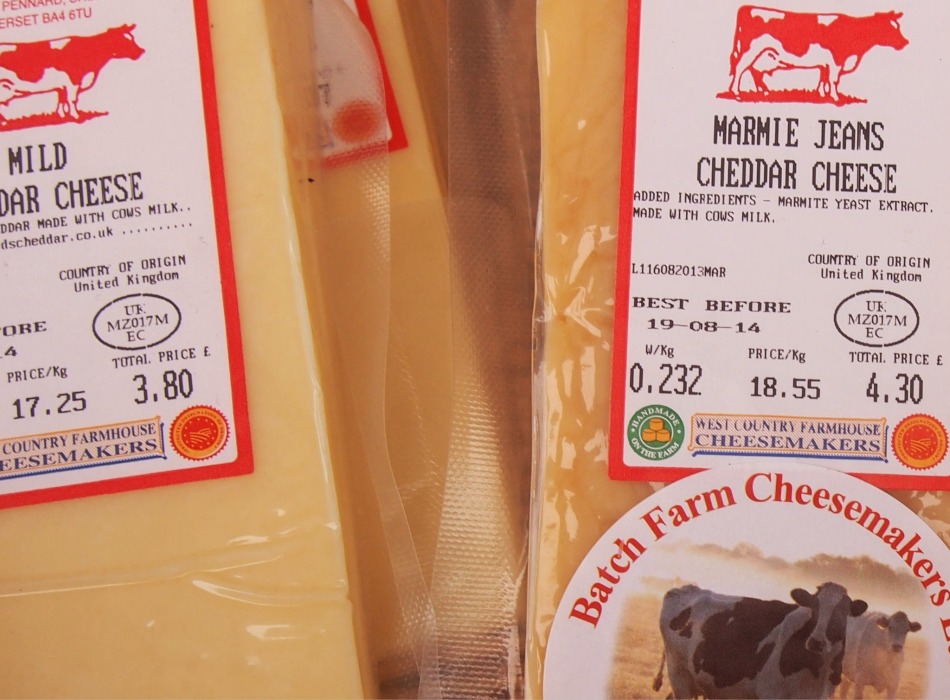
Oh how I miss British cheese! We can’t get a good Cheddar cheese in our current base. Instead, we have “Tasty” cheese. It’s not the same.
Other British cheeses include Stilton, Wensleydale, Lancashire, Caerphilly, and red Leicester. There are many more, from Cornish Yarg to Somerset Brie but Cheddar is likely to be our “everyday” cheese. A good Stilton is our usual Christmas treat with port.
Wales is famous for lamb, Scotland for wild salmon, our entire coastline provides fresh fish, crabs, and other shellfish. Other very “British” produce might include pheasant, venison, grouse, and trout.
The British are famous producers of apples, cider, potatoes, asparagus, strawberries, and fine dairy produce. In summer we grow a mean tomato.
Wild foods might include hazelnuts, field mushrooms, elderflower, blackberries, samphire, and chestnuts. We can, and do, go out to harvest these in our woods and hedgerows.
British Street Food
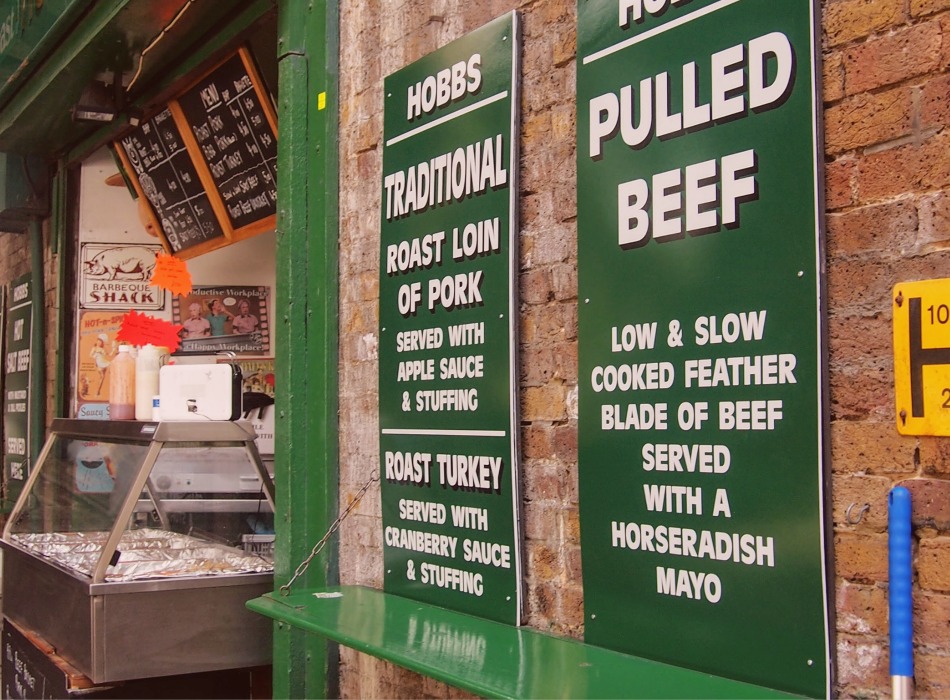
I’m not sure that there really is such a thing as traditional British street food, unless you include roast chestnuts. They were selling those on the streets when Charles Dickens was a lad.
We were brought up to believe it was bad manners to eat on the street so it just didn’t happen. Our fish and chips was always eaten on a plate, at home.
Of course, nowadays we all eat on the streets and I’m glad those silly rules have gone, but what is British street food? We have hotdogs and burgers of course. Never sausage in bread as you see in Australia. There are pies and pasties, some good some bad.
You may be able to find traditional cockles or whelks sold on the street in seaside towns. Both are a simply cooked shellfish, sometimes with vinegar
If you find yourself at a good British street food market or food fair you’re as likely to find curry as roast beef and Yorkshire pudding. German sausages sit alongside French crepes. We’ll serve food from every nation. I can’t think of a real British street food that is popular today. If you can, let me know!
Save this to Pinterest?
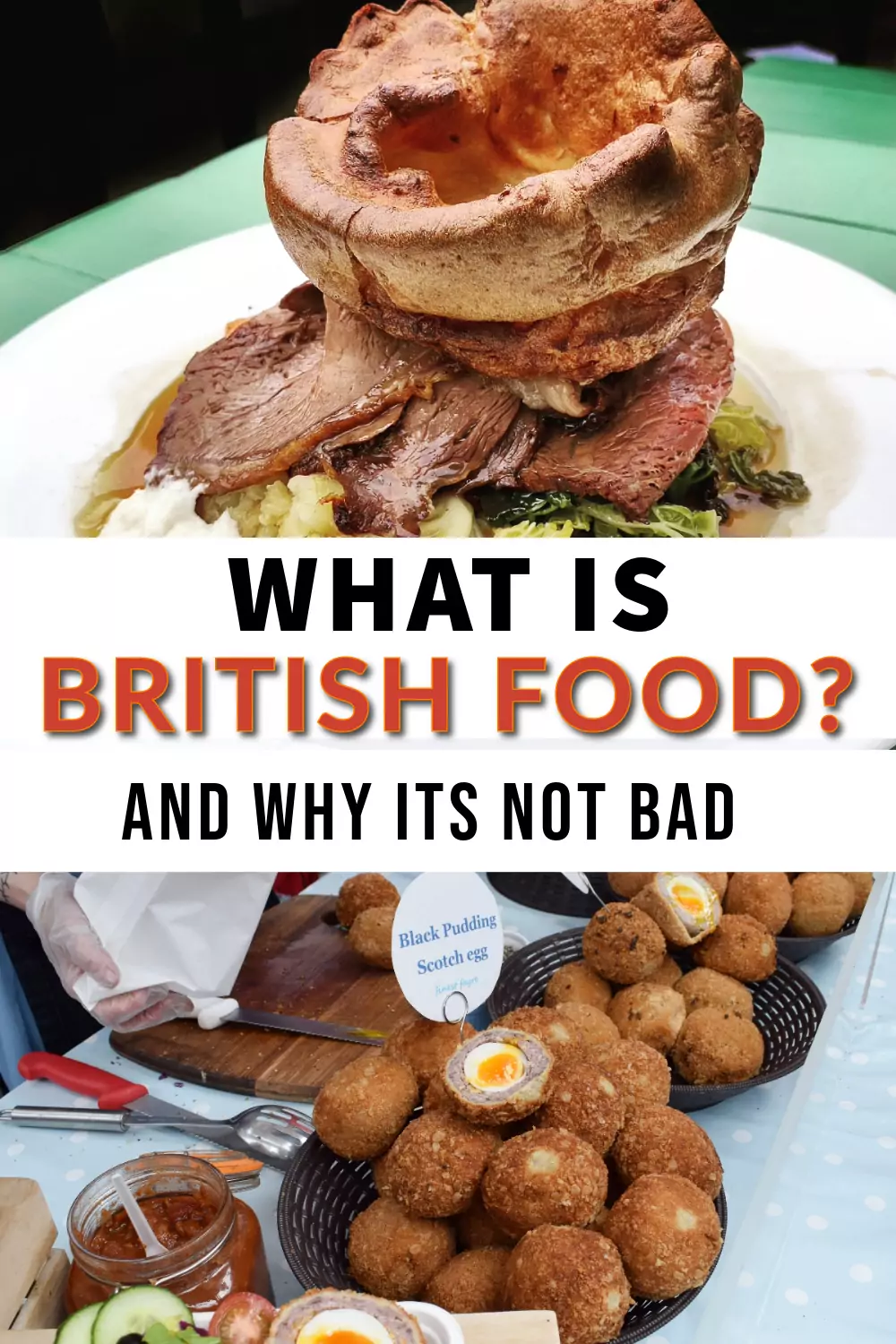
Thanks for sharing!
Where to Find Good British Food?
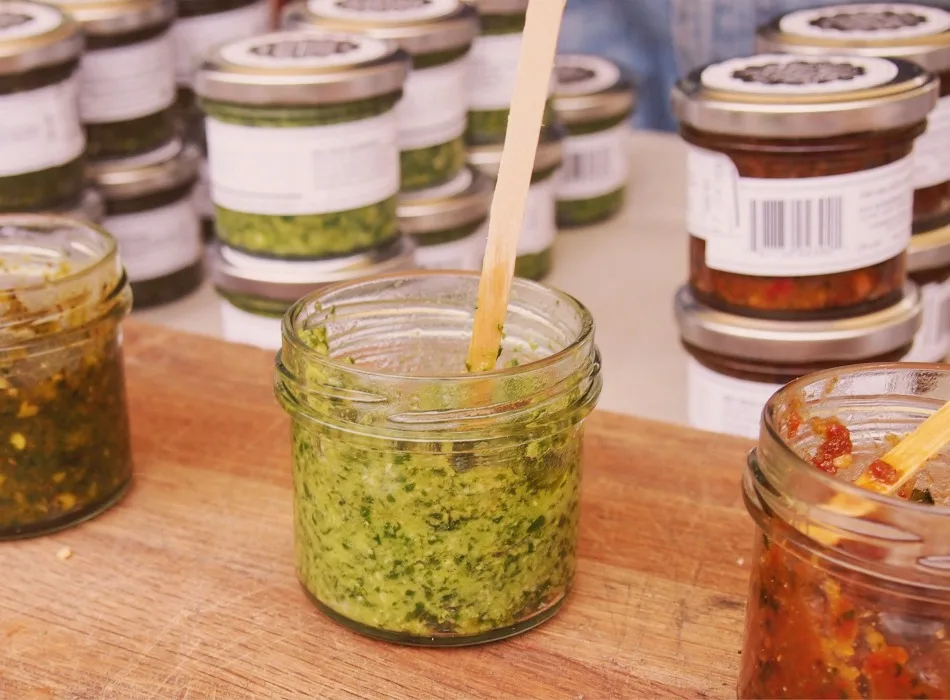
I would strongly recommend searching for great British food in our farmers’ markets. You will find the bakers, bee-keepers, vegetable growers, cheesemakers and quality livestock producers at the markets.
You’ll be able to discover what is grown and harvested locally and be able to tap into the small-scale quality providers, not the commercial mass-producers.
If you’re looking for fish and chips look for reviews. A town might have just one quality fish and chip shop, find it.
Stay away from food outlets aimed just at tourists, find restaurants and cafes that care about repeat custom.
If you’re eating in London, check out Borough Market in South London for every kind of foodie treat. Pie, mash, liquor and eels was available in Greenwich last time we were there.
Is British Food Good?
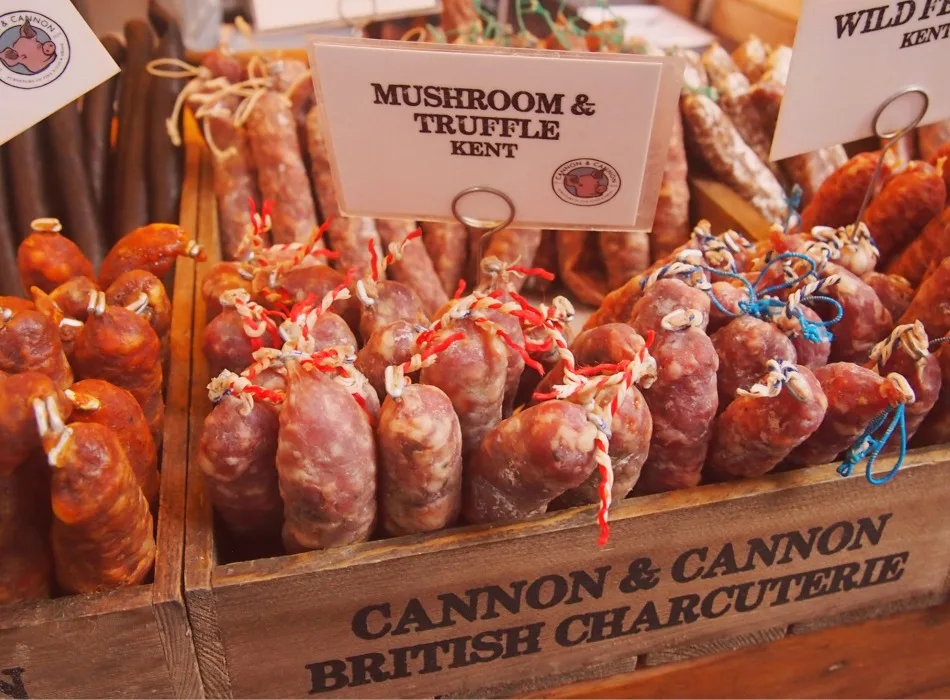
Is British food the best cuisine in the world? No, I don’t think so, absolutely not. I’d give that honour to either Thailand, Vietnam, or India. Southeast Asian food probably wins for me. However, British food is not, by any stretch of the imagination, bad. A lot depends on the cook and the quality of the ingredients but done properly British food is superb. One of the big reasons foreign tourist may have run into bad food in Britain is, sadly, unscrupulous vendors making a quick buck out of tourists. It happens in every country because unfortunately, they don’t care if you come back or not. If you still think British food is bad, tell me why in the comments, I’d love to know more.
If you'd like to hire a car during your stay, use this car rental comparison tool to find the best deal!
We also suggest you take a look at this company to get a quote for all kinds of the more tricky adventure or extended travel insurance.
Try Stayz / VRBO for an alternative way to find rentals on homes/apartments/condos in any country!






